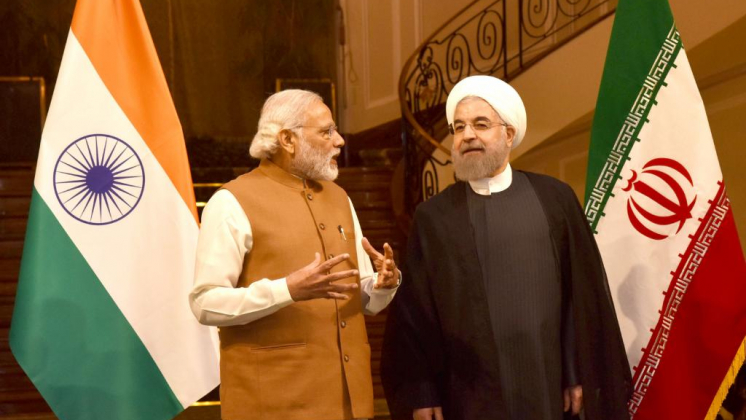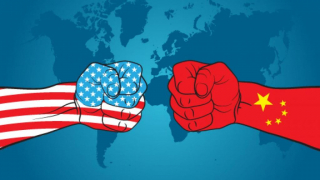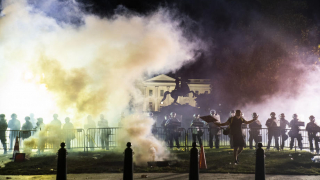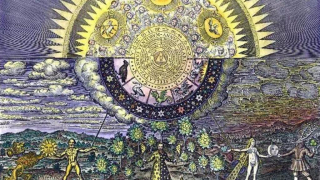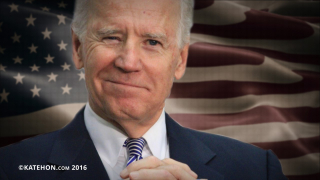US-Iran Relations and Hindutva Issue
The Reason For Western Economic And Political Sanctions Against Iran
We need to begin by looking at who was in power in the US at the time of the first sanctions, and that was Jimmy Carter. His legacy is known for popularizing the concept of “human rights” and “democracy” in the US' International Relations and “national security” discourse. In hindsight, his presidency and the actions related thereof, including the implementation of sanctions against the Islamic Republic of Iran, can be seen as the beginning of a neoliberal shift in the American “deep state” (the permanent military, intelligence, and diplomatic bureaucracies) that laid the foundation for “proto-Color Revolutions”.
The US never seriously thought that the economic and political sanctions would totally impede the working efficiency of the Revolution's leaders, but rather wanted to inconvenience and harm the civilian population as much as they could in order to provoke anti-government resistance to the new authorities. In theory, it was assumed that this would lead to domestic instability which would in turn facilitate the creation of guerrilla-terrorist groups which could then be armed by the US, “Israel”, and Saudi Arabia in overturning the gains of the Revolution and reinstating the old regime. Pretty much, it was expected to mirror the results of the 1953 coup, albeit drawn out over a broader length of time given how the newest independent authorities in Iran had come to power on the back of a nationwide people's revolution.
Moreover, the initial international context needs to also be remembered. One year after the Revolution, the US provoked its new client Saddam Hussein to attack Iran and begin the bloody 8-year-long war. Coupled with the economic and political sanctions on the leadership and general population, the US thought that this would succeed in toppling the government and replacing its leadership, though this plot failed precisely because the people stood behind the Revolution. It was this popular solidarity and sincere support for the government which allowed the Islamic Republic to survive throughout the past 38 years amidst the unceasing Hybrid War on the state (which varied in intensity across the decades). No matter how failed of a policy this has proven to be, however, the US will likely not ever fully change its course on the matter so long as its regime change intentions remain the same, as they've continually been since 1979.
The Prospects For The West Revoking Its Anti-Iranian Sanctions
The first thing that needs to be pointed out in this regard is that the West is actually two categorically separate entities – the US and the EU, with the former generally controlling most of the latter's policies through the occupational military influence of NATO.
The US would only reduce its sanctions against Iran if it felt that such a move would somehow give a competitive advantage to its companies and/or “national security” strategy of regime change, which is in truth why they opted to partially do so in the first place under the Obama Administration. Washington felt that such an obvious overture in favor of Tehran and the Iranian people would amount to the perfect deception in tricking its adversaries into letting down their strategic guard and becoming metaphorically disarmed. At the same time as the lessening of sanctions, it should be noted, the US continued to support Daesh, the MEK (“People's Mujaheddin Organization”), and Kurdish & Baloch terrorist groups around the Iranian periphery.
This proves that the US' intentions for regime change and destabilization never truly changed, though those who believed Washington's empty rhetoric were obviously fooled into thinking otherwise. Additionally, the US doesn't really need the Iranian economy or investments from the country's entrepreneurs, and because of the differences in scale between the US and Iranian economies, Washington can always negotiate and act from a position of relative strength in this instance. It will never “concede” anything unless there's a hidden unstated meaning behind doing so, such as when it initially agreed to reduce the sanctions under Obama.
The EU, if allowed to act “independently” to a certain degree, is in a very different situation than its American overlords. It naturally wants to remove the sanctions because it sees the convincing potential for a series of win-win deals with Iran. Unlike the US, the European economies need the Iranian one in order to continue to grow, just as they similarly crave the investments of its entrepreneurs, especially since the 2008 global economic slowdown. This explains why the UK, France, and Germany were the most eager of the US' allies to see the sanctions removed, and accordingly played an important role during the nuclear negotiations prior to the agreed-upon deal being signed. Either way, no matter whether the EU has a sincere intent in removing the Iranian sanctions and the US has a duplicitous one, it's overall a beneficial development for these unfair restrictions to be lifted in order to provide for the better socio-economic development of the Iranian people.
It should be noted, though, that both the US and EU do have another motivation in reducing the sanctions, and this is to allow the Islamic Republic to change the dynamics of the global energy markets. This interestingly provides an overlap of purpose between the West and Iran, as Tehran needs the revenue that it's been deprived of for so long while the US and its allies want lower energy prices. Extrapolating more from the West's hidden motives, however, it's plain to see that they'd also be in favor of Iran functioning as an alternative to Europe's Russian energy sources and developing into a competitor to Moscow. Furthermore, with Iran playing a more active role on the global energy scene, this would undoubtedly put the energy-dependent Saudis on the strategic defensive, which plays into the US' new “good cop, bad cop” approach towards handling Riyadh.
It's not at all the author's intent to infer that Iran's sovereign right to export its hydrocarbon reserves anywhere in the world is part of a Western plot or that Tehran is in any sense complicit in the US' New Cold War games against Russia, but just that it nonetheless can't be ignored that the US could still gain from Iran exercising this legitimate national prerogative, further giving Washington and Brussels another reason for respecting at least some of their previously agreed-upon sanction relief out of the pursuit of their own grand strategic self-interests.
Who Links Iran To “Terrorism” And Why?
It is patently false to link Iran with terrorism, and the West knows it. Hezbollah, one of their favorite bogeymen, is not a terrorist group, but “Israel” refers to it as such in order to cultivate the perception that it's a “victim” and thus force its Western allies to provide it with all-around support. Anytime Iran is supposedly linked to terrorism by the Western Mainstream Media, this is an infowar aggression which has its origins in actual fake news or manufactured “evidence”. Iran is a victim of terrorism and stoutly fights against it, especially in Syria and Iraq, so it's disingenous to say that it has any complicity in orchestrating terrorist attacks. On the contrary, it's the West – including “Israel” and Saudi Arabia – which support terrorism inside of Iran, whether Daesh, the MEK, “Jundallah”, any other likeminded separatist and regime change proxies.
In a general sense, one of the guiding motivations behind why the US, “Israel”, Saudi Arabia, and their regional partners concocted and promote the false narrative that Iran is allegedly tied to terrorists is because they want to undermine the Islamic Republic's soft power appeal in the region and its extra-regional reputational standing as a valiant opponent of Zionist imperialism against the Great Satans. Iran is a lighthouse of Islamic guidance in the Mideast, so its enemies want to smear its name by brainwashing Muslims and other people into thinking that it's a blasphemous threat to the religion. It's not Iran that fits this profile, but Saudi Arabia and the Wahhabism which the monarchy relies on to 'justify' its export of terrorism all across the world. However, by pretending that Iran is the global terrorist provocateur and not Saudi Arabia, the Islamic Republic's enemies implicitly promote the carefully crafted narrative of a supposed “Sunni-Shiite split”, which never historically existed on the level of Europe's Catholic-Protestant wars but was instead triggered on demand by the US, “Israel”, and Saudi Arabia in order to prompt the circumstances for dividing and ruling the Mideast, as well as assembling a vast coalition of misled Muslims against Iran.
Drawing back to what I mentioned before about how the country's foes support terrorism within Iran's borders and against the central government, these forces also do so under the guise that they're promoting “rebels”, “freedom fighters”, and “anti-terrorist” forces against the “terrorist-promoting” Ayatollah and his allies. The way that they've tried to distort reality is such that their information organs propagate the artificial idea that Iran is a “terrorist state”, so therefore it is not only “legitimate”, but actually “encouraged”, to militantly support fighters (which in all reality are nothing more than actual terrorist groups) against the state in order to bring down what they say is one of the “greatest threats to the world”. It's a perverse manipulation of reality, but in the monopolized and totalitarian information sphere of the Western Mainstream Media, such make-believe fantasies gain currency among unaware individuals who come to believe these lies with time and thus end up backing the terrorist policies of their governments against the Islamic Republic.
State-supported terrorism against Iran doesn't just have to take the form of arming militant groups either since the political and economic sanctions that I spoke about earlier could also be said to fall into this category, too. Building off of that, state terrorism is also the military buildup and saber-rattling that the US, “Israel”, and Saudi Arabia have been engaged in for years already in order to strike fear in the hearts of Iran's citizens. It hasn't ever succeeded because Iranians trust their government and aren't afraid of its enemies, but that doesn't take away from the intention behind why these forces conspire against Tehran in the first place. The fake “Iran threat” that these three foes have invented over the years is just a convenient excuse for them to justify their trilateral partnership. They're exploiting a fear which they themselves made up out of thin air in order to promote other grand objectives separate from what they publicly state, since it would be difficult for any of them to explain to their masses why they're laundering billions of dollars to their respective military-industrial complexes and partnering up with what on the surface misleadingly look like contradictory ideologies (American Exceptionalism & Zionism allying with Wahhabism) had it not been for the manufactured diversion of an “Iranian threat”.
Is It Right For Iran To Use The Term “Great Satan”?
Yes, it is, in fact, no matter how controversial it might sound the first time that someone hears or reads it. This label was given to the US by the late leader in response to the horrifying influence that the US has on the Mideast and the rest of the world in provoking wars and subsequent destruction in its quest to expand and preserve hegemonic power. Understood through this explained reference point, it's sensible why anyone who has been victimized by the US would refer to it as the Great Satan, since this simplified slogan brilliantly expresses the role that America has played over the years.
To clarify and avoid any potential misunderstanding, however, Iman Khomeini wasn't referring to the American people like the hostile Western Mainstream Media says he was, but rather to the Washington “deep state” power structure which is guilty of these international crimes. While there may be some socio-cultural differences and potential disagreements between Iranians and Americans, those aren't grounds for anyone to liken the other to the devil, which is why Iran never means for this to refer to the average American who is powerless to stop these wars of aggression. The country's enemies deliberately misreport the intent behind the Great Satan slogan in order to advance the “Iran threat” myth that they've invented and make it seem like the country is clamoring to kill Americans as part of a religious jihad. Again, this isn't true at all, but it's how the West weaponized its reporting of this slogan and related events in order to brainwash its targeted audiences across the world into hating and fearing Iran for the purposes explained in my previous answers.
If we generalize a bit, we can actually argue that the Great Satan appellation could apply to more than just the US, however. If it's understood that this label is applied in figurative reference to oppressive entities and ideologies, then two other ones deserve to be equally grouped in with the US and its American Exceptionalism as Great Satans – “Israel's” Zionism and Saudi Arabia's Wahhabism. I wrote an article for The Saker blog in May 2015 titled “Exceptionalists vs Integrationalists: The Eurasian-Wide Struggle”, in which I conceptualized these three actors and their ideologies as representing a modern-day Cerberus, the mythological three-headed hell hound which the ancient Greeks believed was the guardian to the underworld. This is a fitting description for the unholy trinity of the US-”Israel”-Saudi Arabia and their ideologies of American Exceptionalism-Zionism-Wahhabism because it encapsulates the deadly destruction that these Great Satans have been responsible for. Each of them oppresses many groups of people, be it the US through its illegal activities in the Mideast and North Africa, “Israel” with the Palestinians and all Muslims in general, and Saudi Arabia towards conventional Sunni Muslims and especially Shiites, to name but only a few of their victims.
If one is consistent with this criteria in identifying and labeling actors and ideologies as Great Satans, then the present-day ruling Indian authorities and their belief in Hindutva (Hindu supremacy) should also be mentioned in this regard, though with the difference being that this has yet to directly threaten Iran unlike the other three. The author didn't begin learning a lot about the danger posed by these two forces until after the original article was published, but in hindsight, it would definitely have been incorporated into the analysis had he been aware at the time about its true nature. Iran has multi-millennial civilizational links with India which preclude it ever countenancing cutting off ties with this increasingly extremist nearby government, thus meaning that Tehran will probably always maintain some sort of mutually constructive and pragmatic relations with New Delhi so long as India's Hindutva doesn't directly pose a danger to Iran. Still, this doesn't mean that the Hindutva ideology should be overlooked, since it is just as bad as the other three aforementioned Great Satans and directly impacts over one billion people.
Prime Minister Modi was once called the “Butcher of Gujarat” because he presided over the state during the time of its anti-Muslim pogroms, which incidentally got him banned from the US. It was alleged that his affiliation with the ultra-supremacist Rashtriya Swayamsevak Sangh (RSS), the same Hindu radical organization linked to Gandhi's assassination and the ideological forefather of the ruling BJP, made him sympathetic to the marauders and contributed to his government turning a blind eye and not doing enough to stop the anti-Muslim killings when they first began. Given these suspicions, it's no surprise then that the situation in Indian-occupied Kashmir has remarkably deteriorated in comparison to recent years ever since he came into power, climaxing in summer 2016 following the martyrdom of Kashmiri freedom activist Burhan Wani. The Indian authorities' reaction to the widespread protests which followed his state-sponsored extra-judicial killing were so severe that freedom of assembly was banned, a harsh curfew was imposed, and for a moment of time Muslims were even banned from going to the mosque. Objectively speaking, Muslims in Indian-occupied Kashmir have it worse than their counterparts in Zionist-occupied Palestine, though considerably less people across the world are aware of their horrible plight at the hands of what can be called – in consistency with Iman Khomeini's original use of his trademarked moniker – the Great Eastern Satan.
India is nuclear-equipped just like the US and “Israel” are, and it's run by a similar group of radical ideologues just like the aforementioned two and Saudi Arabia. It shouldn't be unexpected then that New Delhi is in a newfound military-strategic partnership with Washington and has silently become one of Tel Aviv's most reliable allies and consumers of military hardware anywhere in the world. Although the supremacist violence of the Hindutva ideology doesn't have a global reach like American Exceptionalism, Zionism, or Wahhabism do and mostly concentrates its activities in the subcontinent (and especially Kashmir), it directly involves the fate of over one billion people and is thus disproportionately consequential in spite of the comparative lack of awareness that the global public has about it. To reiterate what was said earlier, Iran has intimate civilizational connections with India and it's Tehran's sovereign choice to decide how it chooses to interact with New Delhi, but at the very least, it should be made known that the occupation of Kashmir is every bit as bad as the occupation of Palestine, and that this provides the legitimate grounds to group it together with other Great Satans such as “Israel”, the US, and Saudi Arabia.
In closing this conversation, one of Iran's greatest global soft power-informational contributions since the 1979 Islamic Revolution has been in raising global awareness about the Great Satan and providing a voice to oppressed populations all across the world. This worldwide famous slogan has become an unforgettable symbol of the Iranian state and perfectly speaks to its values in opposing imperialist ideologies. Even though it might initially sound harsh to some ears the first time that it's heard, the Great Satan moniker perfectly describes the evils that the US “deep state” power structure and similar ones just like it in “Israel”, Saudi Arabia, and even present-day India have been carrying out against their targeted victims, and it powerfully reminds the world why Iran is one of the most influential centers of multipolar resistance today.
__________________
DISCLAIMER: The author writes for this publication in a private capacity which is unrepresentative of anyone or any organization except for his own personal views. Nothing written by the author should ever be conflated with the editorial views or official positions of any other media outlet or institution.

